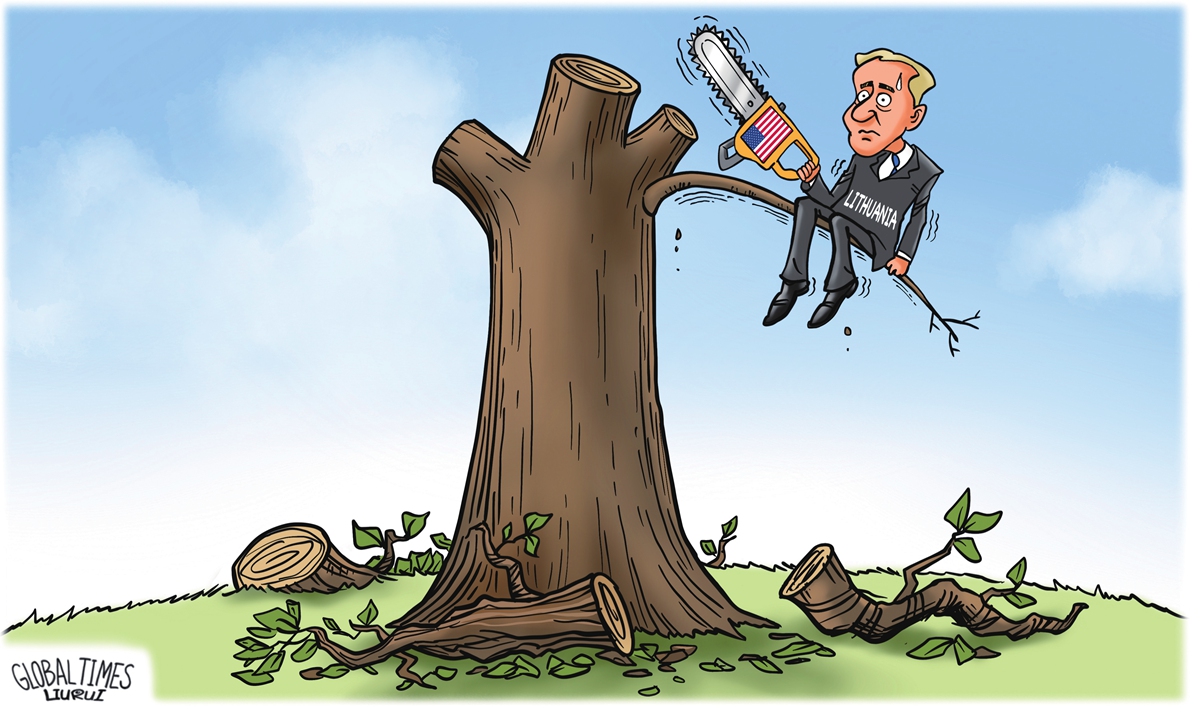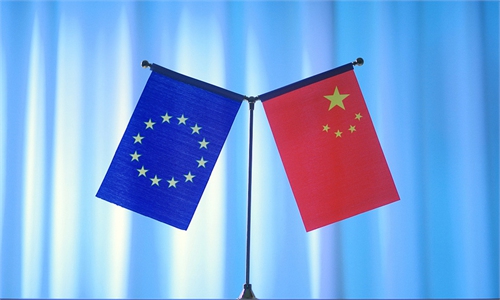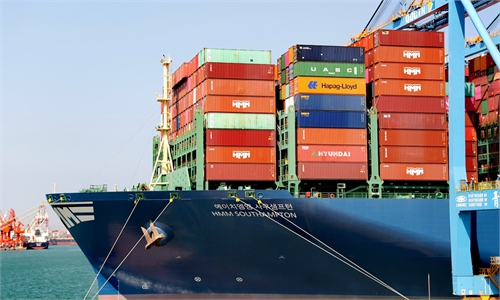GT Voice: US-style sanctions could hurt Lithuania, deter others from playing ‘Taiwan card’

Illustration: Liu Rui/GT
Some Western media outlets have been hyping up China's "economic coercion" against Lithuania over the latter's provocative actions on the Taiwan question, prompting concerns among some European companies that their exports to China that contain Lithuanian components may face trouble entering the country.
In Germany, media reports said over the weekend that more than a dozen German companies may have been caught in between the escalating tensions between China and Lithuania and have been affected by supply chain disruptions.
Although China has not announced any specific economic countermeasures against Lithuanian products, growing concerns among some European companies are not entirely unfounded. Chinese officials have repeatedly warned that Lithuania will pay a price for its actions that challenge China's sovereignty. We have also noticed growing calls on Chinese social media for more political and economic measures against Lithuania.
Lithuania's actions directly violate the one-China principle and seriously undermine China's national interests, which in turn will certainly deal a heavy blow to Lithuanian goods in the Chinese market. Any company from a third-country and with the basic knowledge of the seriousness of Lithuania's mistake would avoid Lithuania-related businesses to stay out of such a political storm.
Politicians in Vilnius may believe that trade between China and Lithuania is so small that they can recklessly play the "Taiwan card" to please Washington, hoping to get a pat on the back. But it should never underestimate China's resolve to protect its national interests. When it comes to core issues like the Taiwan question, there is no wiggle room. Politicians in Vilnius will surely learn about that one way or another.
There are so many ways China can teach Lithuania a lesson. One of them might be more effective than others: US-style sanctions on foreign businesses.
For instance, the US put Huawei on its Entity List, restricting any foreign semiconductor company from selling chips developed or produced using US technologies or software to Huawei without first obtaining a license, which is essentially a blockade.
Whereas the US' motive behind such a move is the ill attempt to unfairly undercut competitors and preserve its hegemony, a similar action by China would be totally justified as a forced response to protect its national interests. That means China has the right to ban any company from selling products using Chinese components or technologies to Lithuania, and vice versa, foreign businesses could also be prohibited from selling products containing raw materials and components from Lithuania to China.
Certainly, it may take some time for some foreign companies to adapt to the change, but we believe they understand the importance of the Taiwan question to the Chinese mainland and that China has no other choice but to strike back at Lithuania's support for "Taiwan independence."
China needs to make an example out of Lithuania when it comes to consequences for external forces supporting "Taiwan independence." In addition to diplomatic moves, we need to take all effective measures to make the price for their disregard for international law and China's sovereignty as high as possible.
Without learning how severe the consequences could be, countries like Lithuania could be very destructive in many different ways. Making Lithuania pay the high price for its mistake will also serve as a warning to other Western anti-China forces that may be tempted to play the "Taiwan card" for political purposes. This kind of mentality must be swiftly dealt with.



